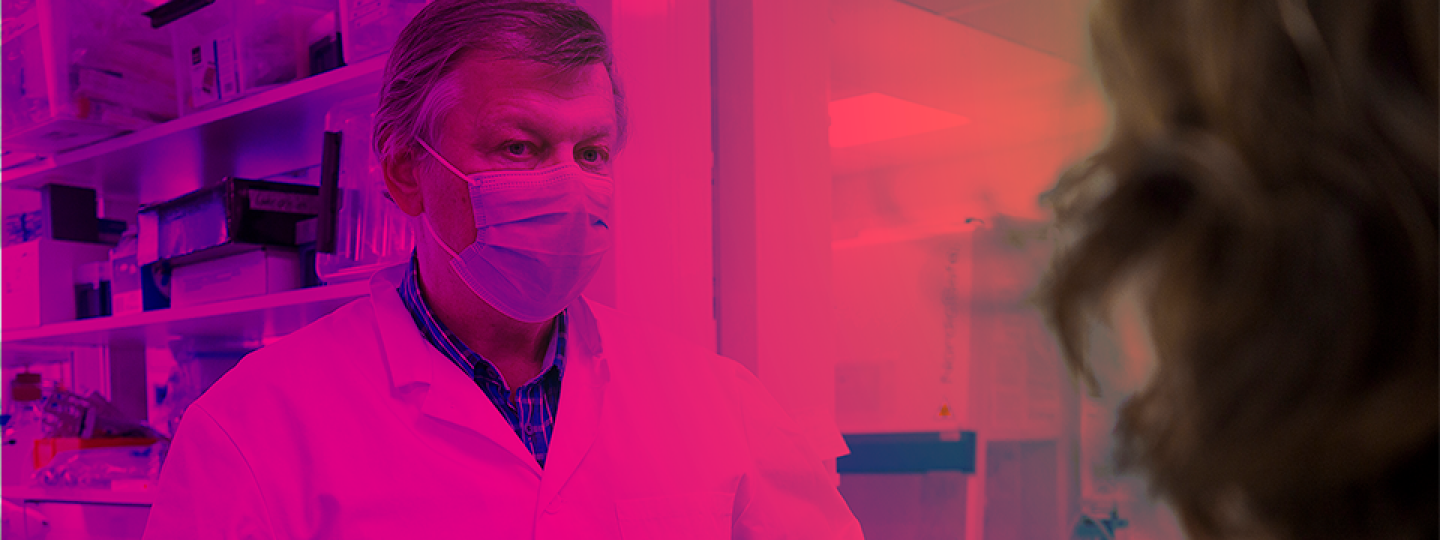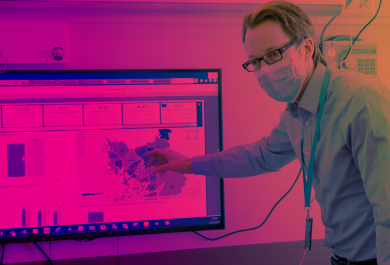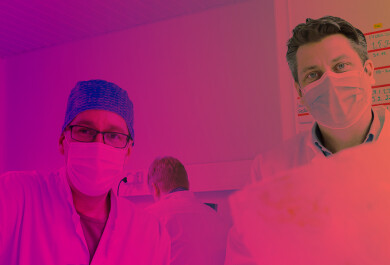The coronavirus launched a pandemic, but also a wave of new research. In spring 2020, most virologists around the world started to study the new, unknown virus. The challenge was also taken up at the University of Turku and Turku University Hospital (Tyks). Eighteen months into the pandemic, the number of international medical publications related to the virus in PubMed is already around 170,000, which is a truly exceptional number.
In spring 2020, the world was in an exceptional situation. The coronavirus, the dramatic spread of the pandemic, and its severe clinical features had been a complete surprise, but the world reacted to it extremely quickly. The previously unknown virus soon proved to be much more dangerous than the influenza. No one in the world was immune to it.
Vaccine development also started quickly. In summer 2020, there were already 250 vaccine candidates, and currently, the number is already 300. There were over 15 coronavirus vaccines used clinically in summer 2021 and 60–70 more under development.
– The vaccine development was successful in a world-record time, says Professor of Virology and Chief Physician at Turku University Hospital Ilkka Julkunen.
One of the characteristics of COVID-19 is that people develop a strong immune response to it. It also means that researchers are likely able to develop effective vaccines against it.
– In that sense, we have been lucky, Julkunen says.
The coronavirus is an RNA virus. Its features include a tendency to develop mistakes, i.e. mutations in the RNA genome. On the other hand, the virus has 30,000 nucleotides and an ability to repair its own gene mistakes to stabilise the RNA. This slows down the mutations in the virus, although new variations do still emerge.
Vaccines Also Offer Good Protection against Variants
Results from around the world as well as the antibody research done in Finland with the staff of Tyks and Helsinki University Hospital show that the vaccines offer good protection against most variants.
– Everyone who has received two doses of vaccines should have good immune protection against all presently circulating variants – at least for some time.
Julkunen reminds us that the vaccines do not offer protection with 100 percent efficacy rate. For example, the vaccine efficacy rate of 97 percent would mean that if a hundred people would end up in hospitals without the vaccines, only three people would have as severe an infection with the help of the vaccines. Moreover, even they would most probably end up having a milder infection than they would have without the vaccine.
In Finland, close to 130,000 cases have been diagnosed by early autumn 2021. This means that we have evidence that a little over two percent of the population have had the virus, and even if we doubled or tripled this number, it would still be only around four to six percent of the population.
The numbers are very different for example in Sweden: the number of people diagnosed with the virus was 10 percent of the population already last spring, and the mortality rate was seven to eight times higher than in Finland. In many population-dense countries, special measures have been as impossible as remote working. In practice, this means that the pandemic will continue to circulate around the world and the importance of vaccines will continue to increase.
– With sufficient vaccination coverage, the epidemic can be contained well, Julkunen says.
By the end of August, over 70 percent of Finnish people had received the first dose of vaccines, and almost 50 percent the second dose. If the new variants are more infectious than before, the required vaccination coverage will rise to around 80–85 percent.
The Virus, Immune Protection, and Vaccine Response Are Studied Extensively
– We cultivate the virus in the laboratory of virology and study its growth characteristics in cell cultures. We want to find out what kind of innate immune responses arise during the virus infection, how human cells react to the virus, and what kind of cytokine or inflammatory responses it causes, Julkunen sums up.
Researchers from the University of Turku have an on-going vaccine response study of 300 test subjects. In the study, the researchers also monitor 150 members of the staff of Turku University Hospital who received the first dose of Pfizer/Biontech vaccine after Christmas 2020 and the second one already in January.
– We were able to conduct research on the antibody responses fairly quickly, first in Europe and with extensive data. In that, we were among the first ones to report the data on vaccine-induced immunity in general public. The research results were published in June in the journal Nature Communications.
According to the research, the COVID-19-mRNA vaccine induces good immune response against the original virus variant and a reasonably good response against other variants. However, for now, there is no information about the long-term immune protection of the vaccine. The results are very similar with those of the research publications released in other parts of the world.
Turku in Frontline of Antibody-Based Diagnostics
Reliable antibody-based diagnostics allows the researchers to distinguish antibody responses against viral surface protein and the core protein. Diagnostics allows them to identify the immune response in people who have had the infection. At the same time, they can distinguish people who have had the infection, in which case the immune response is caused by the antibodies of the core protein of the virus. When the immune response is caused by the vaccine, antibodies only against the surface protein are present.
– We have been able to develop antibody-based diagnostics, and the method has also been published, Julkunen explains.
Antibodies have also been studied with a study population of 220 members of Tyks staff who worked with coronavirus patients at the emergency clinic, infection ward, pulmonary diseases ward, and paediatrics ward.
– Of these people, only three had antibodies. In all of these cases, the infection had most probably been contracted outside the workplace. The results demonstrated that it is possible to reduce your risk of being infected with good personal protection. In patient work, a mask with FFP2 and FFP3 filtering is needed, says Julkunen.
The researchers have also collected samples from inpatients and outpatients who have had the coronavirus infection. These will be used by the researchers to investigate the duration of natural infection-induced immunity. How long it lasts after the patients have had the infection, and how many long-term symptoms they have. What kind of an immune response do those people have who have fully recovered from the infection.
– The higher the level of antibodies, the longer the immunity lasts. The better the immune response induced by the vaccine is, the better the immunity is on the population level, Julkunen summarises.
Julkunen emphasises that even if anti-coronavirus antibodies decrease with time, it does not mean that there is no immune protection. In addition to antibodies, humans also develop immunological memory, which will re-awaken very quickly after the person has encountered a threat of infection. Since the incubation period of the virus is 2–10 days, the immune response can re-awaken quickly enough that the person will not even have a symptomatic infection. The COVID-mRNA vaccines also induce a relatively good cell-mediated immunity.
Turku University Hospital, the Faculty of Medicine at the University of Turku, and the surrounding campus area form a multidisciplinary cluster of excellence in which research and the high-quality treatment based on it form a seamless entity. More than one thousand scientific studies are under way in these organisations, engaging approximately 1,500 experts. Approximately 200,000 patients receive treatment at Tyks every year. Visits to outpatient care total over 1.2 million and days at inpatient care almost 300,000. The University of Turku and the Hospital District of Southwest Finland are part of the Health Campus Turku network, which also includes Åbo Akademi University, Turku University of Applied Sciences, Novia University of Applied Sciences and Turku Science Park Oy.
Text: Sini Silvàn
Photos: Mikael Soininen
Translation: Lotta Junnila




